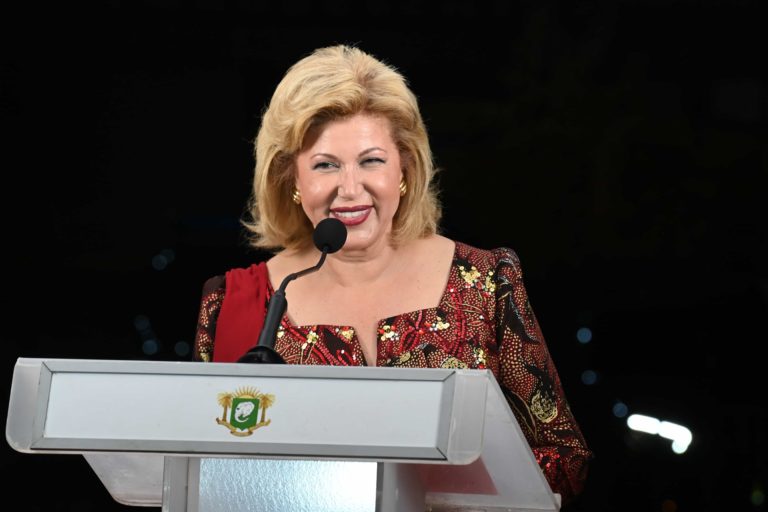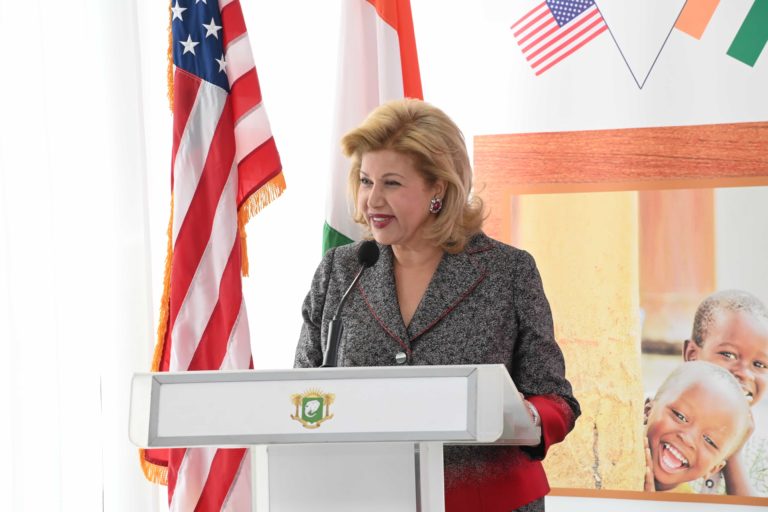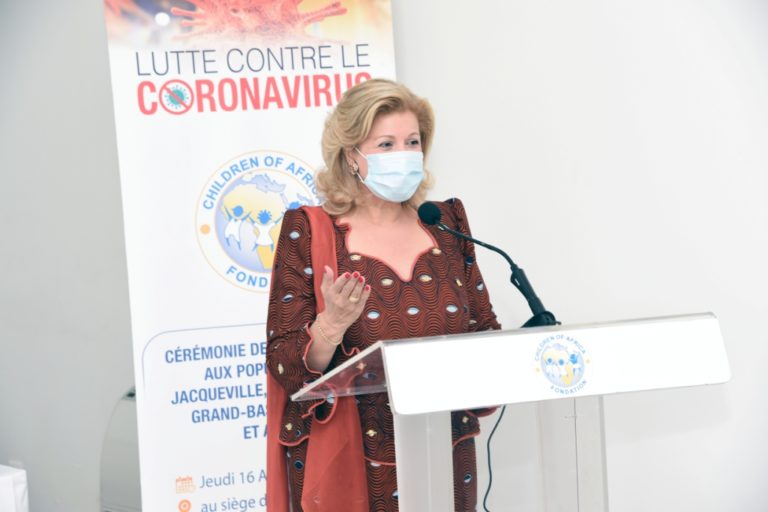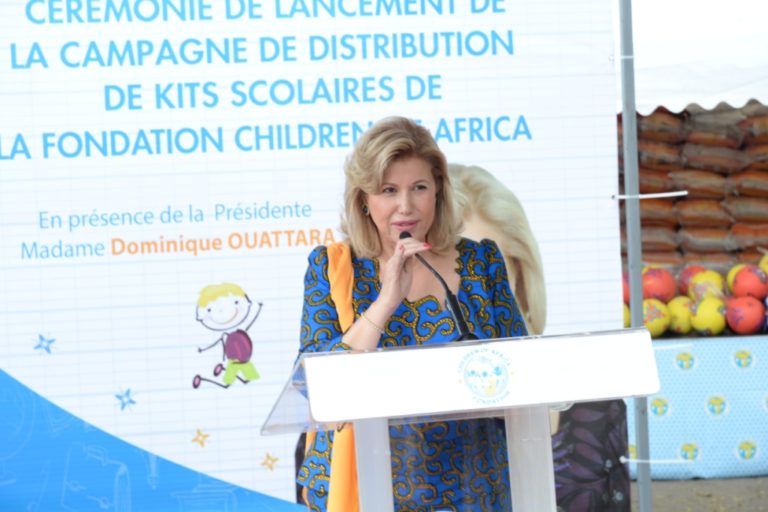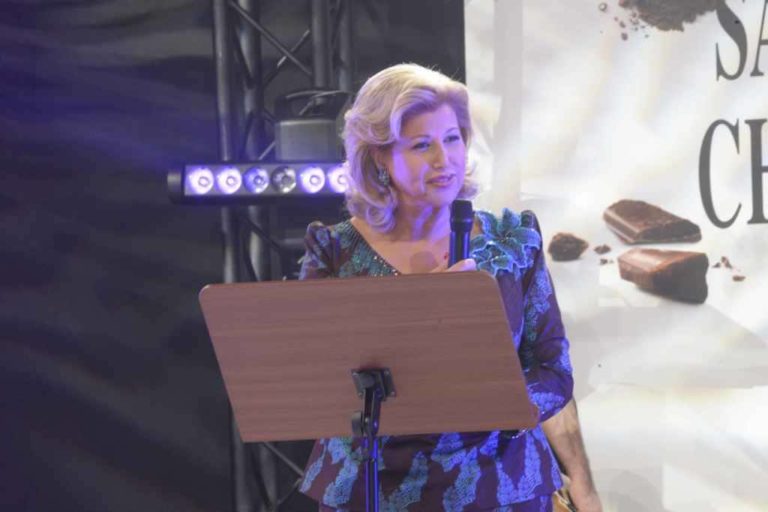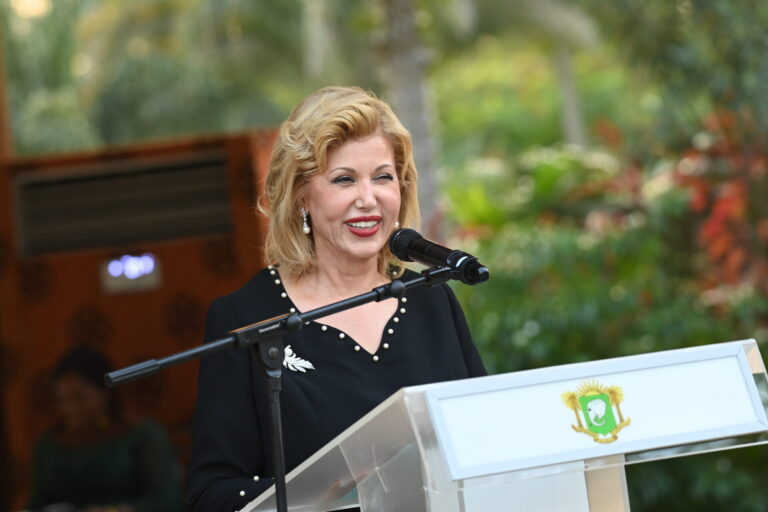
Discours
Speeches
My speech at the working meeting with the ILO

Ladies and Gentlemen,
I am happy to be here today at the headquarters of the International Labor Organization in Geneva, as part of this exchange meeting on the issue of the worst forms of child labor.
I would first like to thank Mr. Guy RYDER, Director General of the International Labor Office, who receives us today in a so warmly way.
I also greet on the same occasion, the presence of the ILO members, as well as that of all the specialists and technicians, who came to discuss the issue of child labor in Côte d’Ivoire. I commend especially the experts, the conclusions of the work on the measurement criteria of child labor that have just been presented to us.
I would also like to greet all the personalities who made the trip to Geneva, in particular:
– Minister Moussa DOSSO, Chairman of the Inter-ministerial Committee for the Fight Against Trafficking, Exploitation and Child Labor;
– Mr. Dramane HAIDARA, ILO Director for Côte d’Ivoire;
– Mrs. Massandjé TOURE-LITSE, Director General of the Coffee and Cocoa Board.
They all made the trip to attend the meeting which stakes are very important for the Côte d’Ivoire, Africa and the world; and for all players involved in the fight against child labor.
Ladies and Gentlemen,
As you all know, the Côte d’Ivoire, is strongly committed in the fight against the worst forms of child labor since these recent years.
Thanks to the will of my husband, President Alassane OUATTARA, the fight against this phenomenon has been raised to national priority.
In this framework, the National Committee Oversight Committee I have the honor to chair, and the Inter-ministerial Committee collaborate with national and international partners to eliminate this scourge on the national territory.
This being so, it is with the support of our various public and private partners that efforts so far have enabled us to achieve significant progress.
At this stage of my remarks, I would particularly like to thank the ILO for major programs that were conducted in Côte d’Ivoire, as mentioned above by the Minister Moussa DOSSO in his speech.
Indeed Mr. Director General, since 2003, your organization implements many projects aiming at eliminating the worst forms of child labor.
Ladies and Gentlemen,
I would like now to introduce some of the important steps taken by Côte d’Ivoire in the fight against child labor.
Following studies and working meetings, we have been able to implement a first National Action Plan from 2012-2014, thanks to the US $ 14 million invested by the Ivorian state, in addition to our partners’ investment.
Today, the phenomenon of trafficking in children is regressing in Côte d’Ivoire, namely through the adoption and implementation of the law prohibiting and penalizing the worst forms of child labor.
This law has enabled us to carry out extensive police operations, in collaboration with Interpol, which led to the arrest and conviction of 25 traffickers to penalties. Thus, from 2012 to 2014, there are more than 4,000 child victims of trafficking who have been rescued and supported. In this same vein, and in the fight against cross-border trafficking, we have signed bilateral agreements with my sisters the First Ladies of Mali and Burkina Faso.
We also succeed at fighting against child trafficking in Côte d’Ivoire, through the training of various stakeholders on the issue of child labor, and the strengthening of the capacities of judges, national police, the gendarmerie and staff of the prefectures, and all players of the remediation chain.
We regularly conduct extensive communication campaigns across the country, to raise-awareness and inform people about the dangers of the worst forms of child labor.
Furthermore, we realize school infrastructure to enable all our children have access to education. Thus, from 2011 to 2015, more than 17,000 preschool and primary classrooms and 155 secondary schools have been built or rehabilitated throughout the country.
At this stage of my remarks, I would like to thank all our partners, including the Coffee-Cocoa Board, which has significantly contributed to this investment.
This first step allowed thereafter to make education compulsory for all children from 6 to 16 years, which was not previously the case. This way, no child is left out of the educational system, as education remains the most effective alternative for sustainable fight against child labor.
Ladies and Gentlemen,
After executing the 2012-2014 Action Plan, we also adopted a new Action Plan for 2015-2017, of an equivalent budget, which allows us to consolidate gains and increase our actions throughout the national territory. This plan projects for the organization of a summit of First Ladies of the West African sub-region in Côte d’Ivoire to raise awareness and win support of my sisters to this noble cause, and promote greater involvement of their countries.
It also plans, the construction of three reception centers by Children of Africa Foundation, for child victims of trafficking for immediate care and reintegration. Finally, the new plan includes among others, the construction of several thousand additional classrooms on the entire national territory, in connection with our partners.
Ladies and Gentlemen,
I would like to reaffirm the commitment and the agreement of my country, for the application of Conventions 138 and 182, prohibiting the worst forms of child labor.
However, despite all our good will, and the significant actions taken in recent years, a major problem persists and can hinder our efforts, namely the issue of the criteria of identification, measurement and qualification of children as victims the worst forms of child labor.
Indeed, recent studies conducted in Côte d’Ivoire on the issue in cocoa for example, show that nearly two-thirds of children live with their parents and attend school, but they also accompany them often to the field after school hours. This finding is important and should be taken into account by all stakeholders in the fight against child labor.
All too often I hear at the end of surveys, that children who help their parents after school, in farm or domestic work, are regarded as “working children”, along with the child victims of exploitation and uprooted from their homes because investigators built upon on the 13th International Conference held in Geneva in 1982 on labor statistics.
According to the resolutions of that conference, even if the activity executed does not affect his health, his school attendance, and his rest, any child who works at least 1 hour per week is considered as “working child”.
Yet, I sincerely believe, that one should avoid considering that children accompanying their parents after school, are systematically numbered as “working children” or “exploited children”.
Indeed, conferring the status of “working children” to school children who, outside of school hours, do in the family framework, be it an hour of activity in the week, remains hardly acceptable by people.
Parents do not understand that their children may not be allowed to help them after school to learn and to love their job, as is done in the rest of world, for example with the “community service”. And I agree with them.
In my view, children should perform light socializing tasks, of course provided that they do not undermine their physical and health development.
In this context, they should also be placed under the supervision of an adult, and these extracurricular activities will absolutely not take off any time they are entitled.
We also need to further educate parents to make them able to identify the hazardous and prohibited work children should not be exposed to.
Ladies and Gentlemen,
For all these reasons, we believe it is essential to review all the measurement criteria of child labor, if we want to achieve the common goal of eliminating the worst forms of child labor.
That’s the reason why, I wanted to come and meet you, Mr. Director General, so that we can discuss this sensitive issue of qualification criteria for child victims, for future investigations.
The position we take is fully shared by all national stakeholders in the public sector, represented by the Minister of Employment and Social Protection; as well as the private sector in Côte d’Ivoire,
who accompany us in this mission, to show their support.
I would like for this purpose, to commend the presence of Mr. Bernard N’DOUMI, Representing the General Confederation of Enterprises in Côte d’Ivoire, as well as that of Madame Marie-Jeanne KOMBO, the Representative of the General Union of Workers in Côte d’Ivoire.
Ladies and Gentlemen,
I will conclude my remarks by reiterating my thanks to the ILO, which accompanies us in our efforts to fight against child labor. We hope that this partnership is strengthened for the happiness of our dear children.
Thank you.
